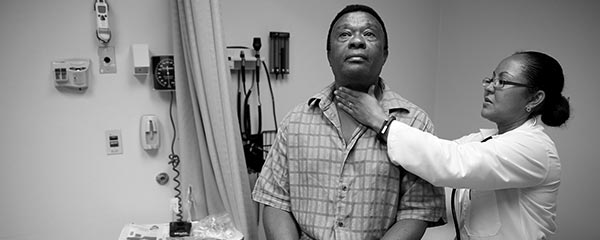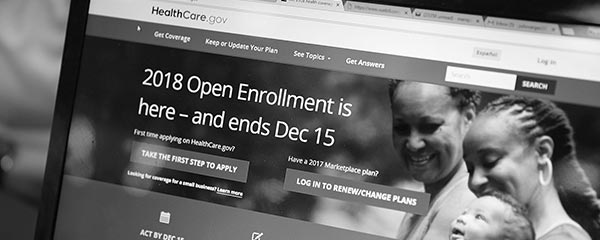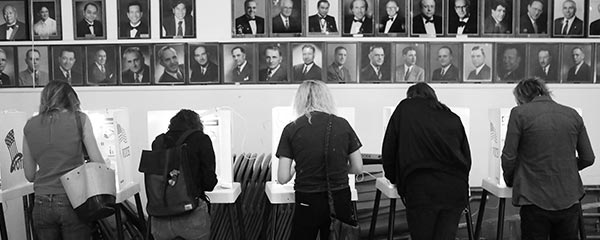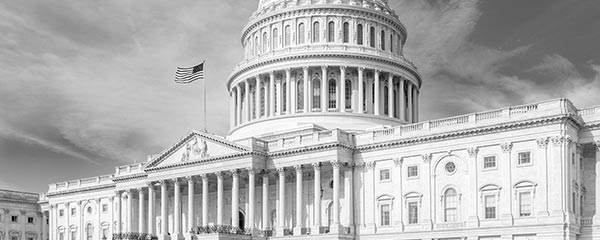Story Highlights
- 57% say it is government's responsibility to see that all have healthcare
- Four in 10 want a government-run healthcare system
- Republicans and Democrats have starkly differing views on these issues
WASHINGTON, D.C. -- The majority of Americans, 57%, continue to believe the federal government should be responsible for ensuring that all Americans have health insurance. At the same time, a majority reject a government-run healthcare system, with 40% in favor and 54% preferring a system based on private insurance. These attitudes help underscore the complex challenge facing policymakers attempting to address problems with the nation's health system.
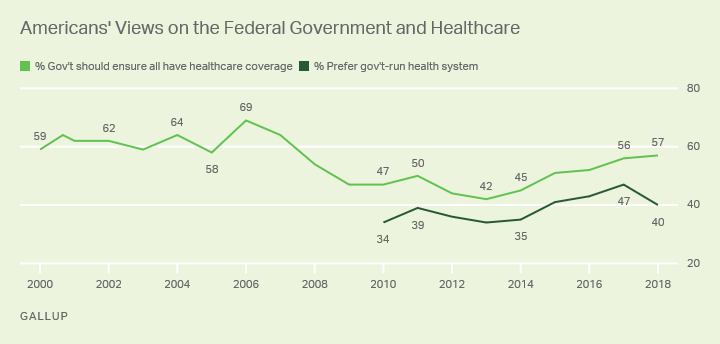
The 57% of Americans who agree that government should be responsible for all Americans having healthcare is about the same as last year and as high as it has been since 2007. Before then, as many as 69% of Americans believed the government should ensure that all have healthcare. Support for government responsibility for healthcare plummeted in 2008 as Barack Obama ran for and was elected president with promises to enact new comprehensive healthcare legislation, bottoming out at 42% in 2013.
The 40% of Americans who opt for "a government-run healthcare system" -- as opposed to a "system based mostly on private health insurance" -- is currently down from last year's high of 47% and more in line with the previous two years (the question has been asked in this format only since 2010, after the Affordable Care Act or "Obamacare" was passed).
Although these sentiments largely reflect the original intentions of the ACA -- mandating health coverage for all while leaving the nuts and bolts of providing such coverage to the private insurance system -- support for that law is mixed. These views, along with the extraordinary contentiousness that has surrounded the ACA since its passage eight years ago, certainly indicate that the ACA has not been the widely accepted solution its supporters had envisioned, despite its broad fit with public ideas about the government's role in healthcare.
The increasing promotion of a "Medicare for all" healthcare system by former Democratic presidential candidate and U.S. Sen. Bernie Sanders, newly elected Rep. Alexandria Ocasio-Cortez and other Democratic politicians, indicates that this idea will continue to be front and center on the public agenda. But well less than a majority of Americans support the concept of a government-run system, underscoring the challenge inherent in efforts to translate the idea into policy reality.
Stark Political Differences in Views on the Government and Healthcare
Probably the biggest challenge facing policymakers in their efforts to fix the nation's healthcare system is the stark political differences in attitudes about what government should or should not be doing.
The overwhelming majority of Democrats and Democratic-leaning independents, including 85% this year, have consistently said it is the government's responsibility to make sure all have healthcare coverage. In contrast, the percentage of Republicans and Republican leaners sharing this view has always been below the majority level, and in recent years it has been closer to 25%.
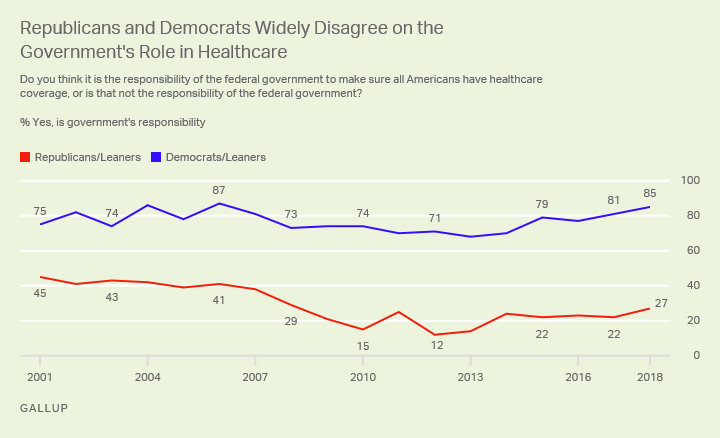
Democrats and Republicans also disagree profoundly on the idea of a government-run healthcare system. About two-thirds of Democrats endorse the concept; just 13% of Republicans agree.
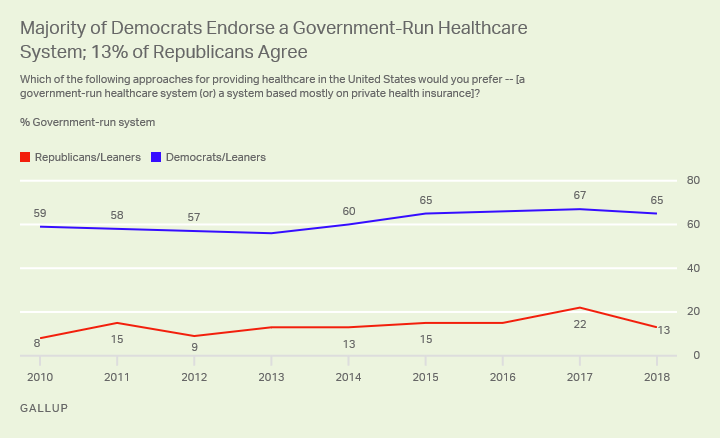
The political challenge of attempting to reach a solution to reforming the nation's healthcare system is well summarized by combining responses to these two questions:
-
About two-thirds of Republicans and Republican leaners (67%) don't believe that government should be responsible for ensuring that all have healthcare, and don't want government to run the healthcare system.
-
Sixty percent of Democrats and Democratic leaners, by contrast, take exactly the opposite position -- that the government should be responsible for making sure all have healthcare, and that the best option is a government-run healthcare system.
Bottom Line
The U.S. government is already heavily involved in providing access to healthcare and controlling health costs with its long-standing Medicare and Medicaid programs. But the idea that the government would become even more involved in ensuring and providing healthcare for those under 65 and those not below the poverty line has led to some of the fiercest policy fights of recent decades.
Americans continue to say that access to healthcare and healthcare costs are the most urgent health problems facing the nation. The Affordable Care Act of 2010 addressed these issues in part by mandating that all Americans have health insurance and implementing some cost controls. But the ACA has been highly controversial since its inception, weakened by various executive orders and legislative actions, including Republicans removing the individual mandate as part of the 2017 tax cut law. At the same time, the widely discussed alternative of creating a Medicare-for-all system faces the hurdle of overcoming the public's resistance to the concept of a government-run health system.
Healthcare has become one of the most politically polarized issues on the nation's policy agenda. Republicans largely dispute the idea that it is the government's role to get heavily involved in mandating or providing healthcare, while Democrats largely support these ideas. Given the divided government that will be the reality beginning in January, it is very uncertain that any solution to the healthcare situation will be enacted over the next two years. Still, it is highly likely that the government's role in healthcare will be one of the major campaign issues facing presidential and congressional aspirants as the 2020 elections approach.
Learn more about how the works.

